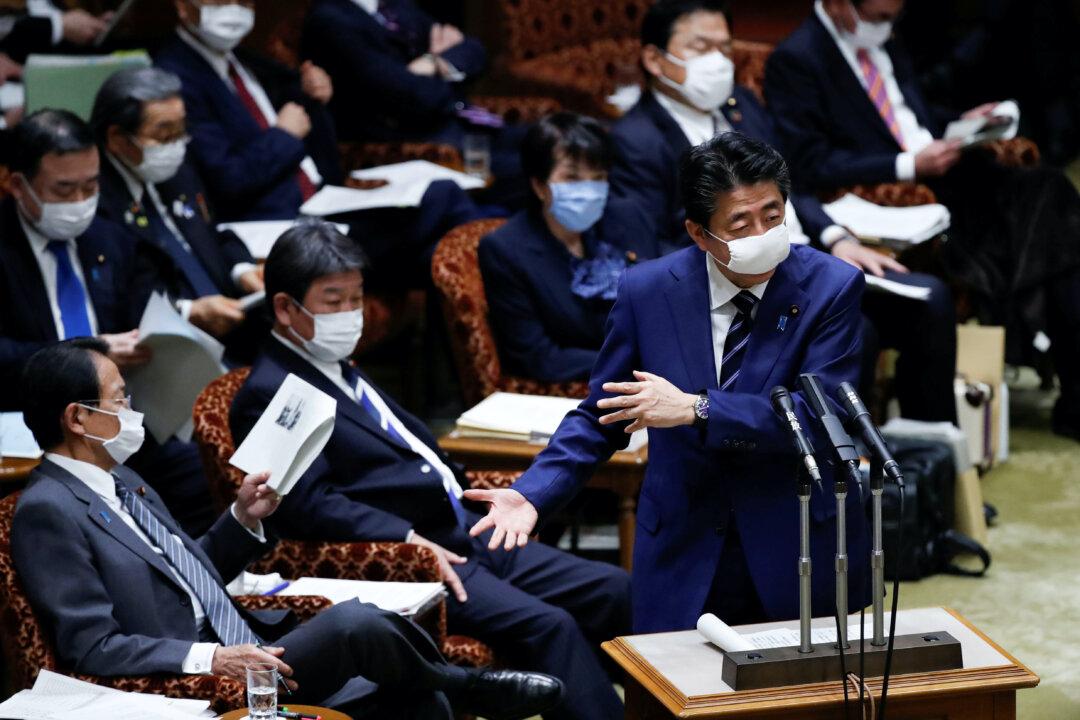TOKYO—Japan will ban entry to foreigners from 73 countries and ask everyone arriving from abroad to quarantine themselves for two weeks as it struggles to contain the CCP virus, with a senior minister warning the country had been pushed “to the brink.”
Medical experts advising Prime Minister Shinzo Abe told a news conference on Wednesday that the rapid spread of contagion was severely straining hospitals in Tokyo, in Osaka, and some other prefectures and that quick action was vital.





